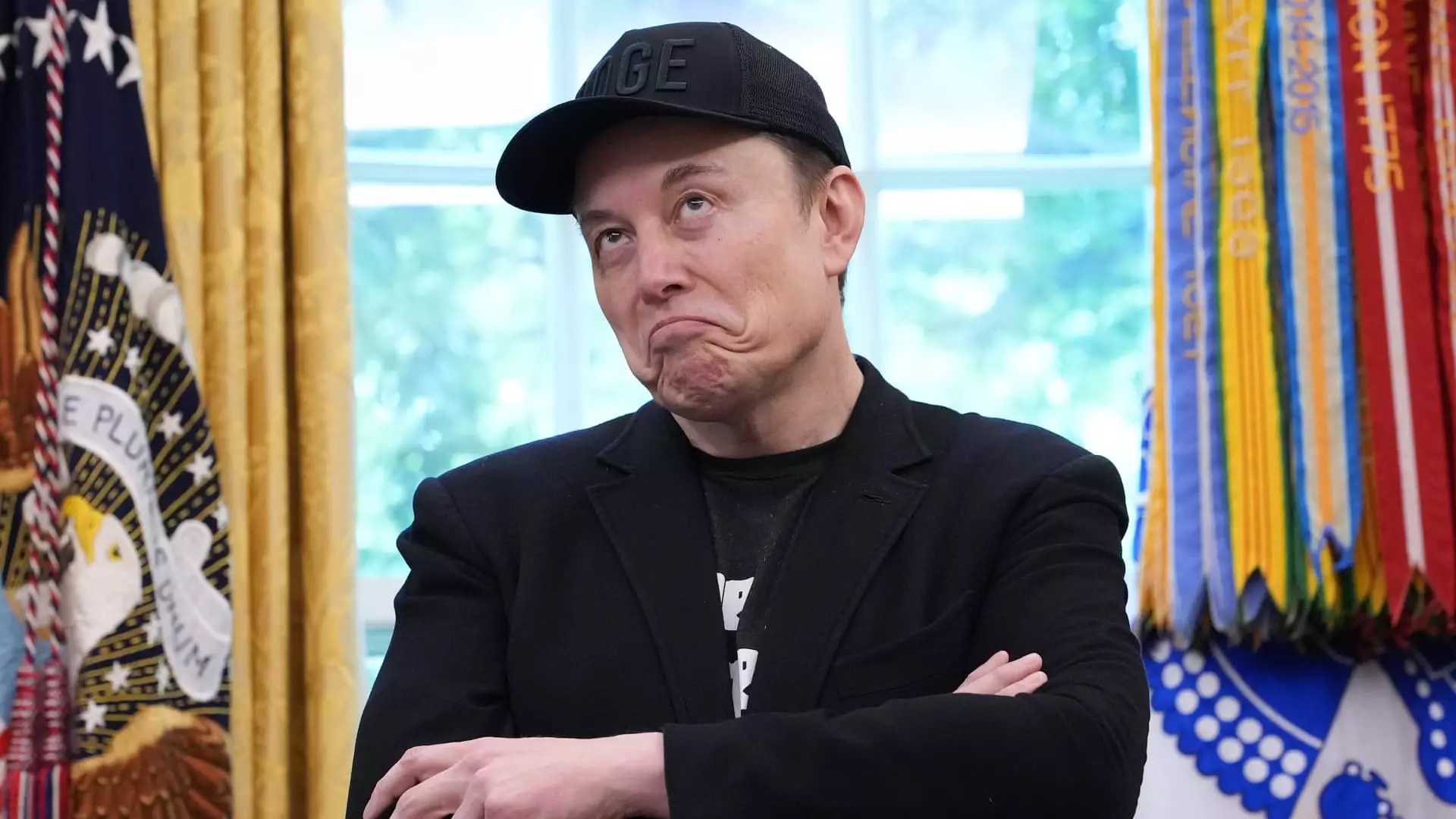Elon Musk’s recent critique of the U.S. government’s latest spending bill exemplifies how influential voices can shape public discourse and policy debates. Musk, a pivotal figure in technological innovation and sustainable energy, decisively labeled the legislation as a contributor to mounting national debt. His outspoken stance underscores a larger narrative: visionaries and industry leaders are increasingly willing to challenge political expediency when it threatens long-term stability. Musk’s endorsement of Senator Rand Paul’s critique of the bill’s fiscal irresponsibility emphasizes his commitment to fiscal responsibility, especially as it affects industries that align with his business interests, such as electric vehicles and renewable energy.
This bold approach is emblematic of an awakening among corporate giants who recognize that legislation impacting their sectors cannot be passively accepted. Musk’s vocal criticism, especially given his influence and media reach, is a strategic move to push lawmakers towards more sustainable and forward-looking policies. His stance also reveals a broader concern about how politics often prioritizes short-term wins rather than addressing systemic issues like debt sustainability and climate change.
Strategic Sabre-Rattling or Genuine Advocacy?
While Musk’s remarks resonate with many who seek fiscal responsibility, critics might view his comments as self-interested, given the potential impact of the bill’s provisions on his companies and the industries they serve. The bill’s cuts to renewable energy incentives and EV subsidies directly threaten the growth trajectory of Tesla and Musk’s envisioned future for sustainable transportation. By positioning himself as a fiscal hawk, Musk strengthens his image as a responsible leader committed to innovation that benefits society as a whole.
However, this stance also raises questions about motives. Is Musk truly concerned about national debt, or is this simply a strategic move to influence legislation in ways that favor his business ambitions? Given the history of high-profile clashes with political figures, especially Donald Trump, some skeptics question whether Musk’s advocacy is driven by genuine concern or by the pursuit of competitive advantage. Nevertheless, his willingness to speak out demonstrates the increasing importance of corporate activism in shaping policy agendas.
Implications for the Future of Innovation and Policy Engagement
Musk’s approach highlights a significant trend: influential entrepreneurs and CEOs are no longer passive respondents to policy but active participants shaping debates that affect their industries and societal well-being. His vocal resistance to a bill that endangers environmental initiatives he champions reflects an understanding that policy decisions have tangible consequences on technological progress and climate resilience.
Furthermore, Musk’s position invites a reevaluation of how innovation and sustainability intertwine with fiscal policy. His criticism warns policymakers that ignoring the long-term implications of their decisions—such as mounting debt or cutting crucial green subsidies—may hinder technological progress and undermine efforts to combat climate change. As industry leaders become more politically engaged, their voices may serve as crucial counterweights to shortsighted political calculus, fostering a more holistic approach that balances economic stability with sustainable growth.
In the end, Elon Musk’s stance is a reminder: the path to genuine progress often requires challenging the status quo, even if it means facing backlash from entrenched interests. His outspoken opposition underscores the imperative for leaders—not only in politics but across sectors—to prioritize long-term sustainability over fleeting political victories.

